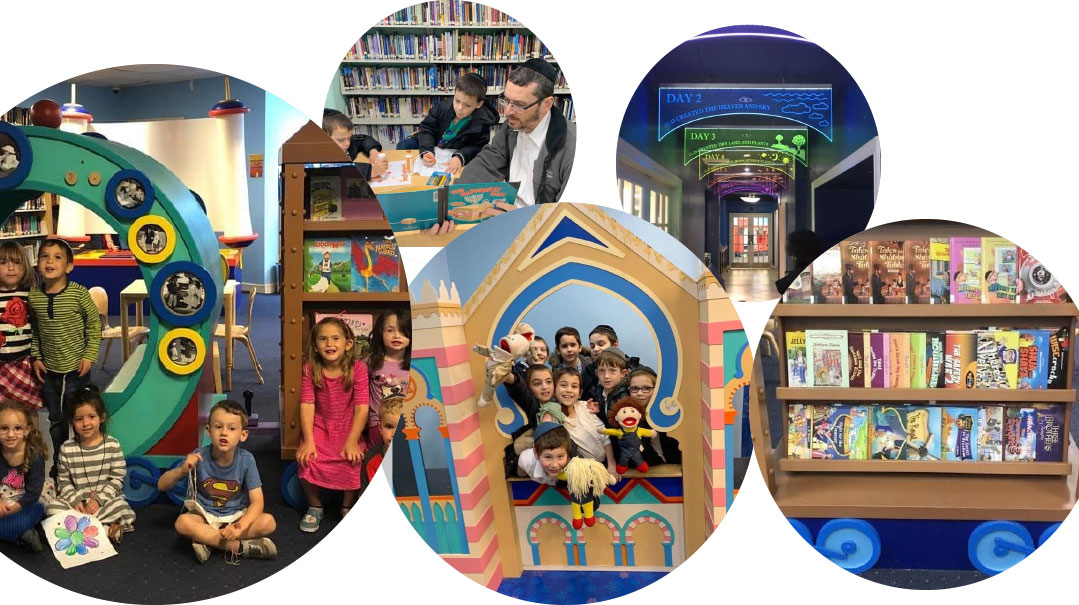Dreamscapes: To increase Torah learning and observance among Jews

We respect them and learn from them, while recognizing that there’s something essential that we have to share. We plant seeds, water them, and daven

Name: Elisheva Grossman
Dream: Increase Torah learning and observance among Jews
Location: Huntington, NY
M
y dream isn’t one I nurtured since childhood; it crept up on me slowly.
I grew up in Flatbush, went to Bais Yaakov, dabbled in kiruv — just a bit of one-on-one learning through Aish HaTorah, nothing major. Although my friends wouldn’t describe me as shy, I tend to clam up in social situations. The idea of getting up in front of a classroom terrified me (it still does), and I knew I’d never be a teacher. I became a programmer, because I enjoyed math and wouldn’t have to interact with people all day.
I was always conscious of making a kiddush Hashem in my office, mostly by showing that I could be friendly even without going out for drinks with the team after work. I did occasionally field questions from less-affiliated coworkers, sometimes pointing them to resources such as a mohel for a son’s bris.
But a life of teaching Torah wasn’t on my radar. During my first date with my husband, a talmid of Yeshiva Chofetz Chaim, I asked what was unique about his yeshivah. His thoughtful answer explained the importance of harbatzas Torah — disseminating the light of Torah, helping people take baby steps toward Hashem. It’s not kiruv in the sense of trying to rack up a high score of saved souls, it’s meeting people where they’re at, teaching them, helping them learn and grow and push themselves a little more And that became our lives. I grew into that dream after marrying him.
By the time we had six kids in our two-bedroom apartment, we knew we had to move. My husband had semichah and was ready to teach. We looked for a community where we’d make a difference.
After checking out various places, we were drawn to Huntington, a town on Long Island. We daven at the Young Israel here; it’s a small kehillah, but intensely earnest about its Jewishness. They gladly allow us to use the shul as a base of operations. As one fellow told us, if we were willing to uproot our lives to come to this Jewishly remote town, we must have something really important to say.
Our lives aren’t glamorous. I drive the kids to school in Queens most days. That’s over an hour each way (without traffic). On the short Sundays and Fridays, I wait in the city to bring them home, so I can’t really hold down a job or any formal outreach responsibilities.
Then there’s the Wednesday night kollel program where we provide supper. I drive to the Queens takeout place that donates the food, make room for it in our freezer, let it drip all over our floor when it defrosts — not the stuff starry-eyed idealists dream about, but someone has to do it. When there isn’t enough, I cook something fresh.
We don’t make many large events, aside from Purim and Chanukah, when I self-cater big parties. On Purim, we host dozens in our home for the seudah. My husband leins Megillah in the beginning... and then again for the latecomers... and sometimes again for the really late crowd. Mostly, though, it’s one-on-one or small-group learning, and lots of Shabbos meals with individuals, not crowds. The difference we make happens in small quiet moments. A Chanukah party can draw over a hundred people, but does it change anyone’s life? Personal interaction does — often very slowly, but in a lasting way.
In other kiruv settings, such as on a college campus, with lots of searching young people, the right influence can steer students on a life-altering course. But we interact mostly with people who already have families, careers, long-standing affiliations. They’re intelligent, thinking adults, with ideals of their own, who lead rich, full lives. We respect them and learn from them, while recognizing that there’s something essential that we have to share. We plant seeds, water them, and daven.
(Excerpted from Family First, Issue 588)
Oops! We could not locate your form.







